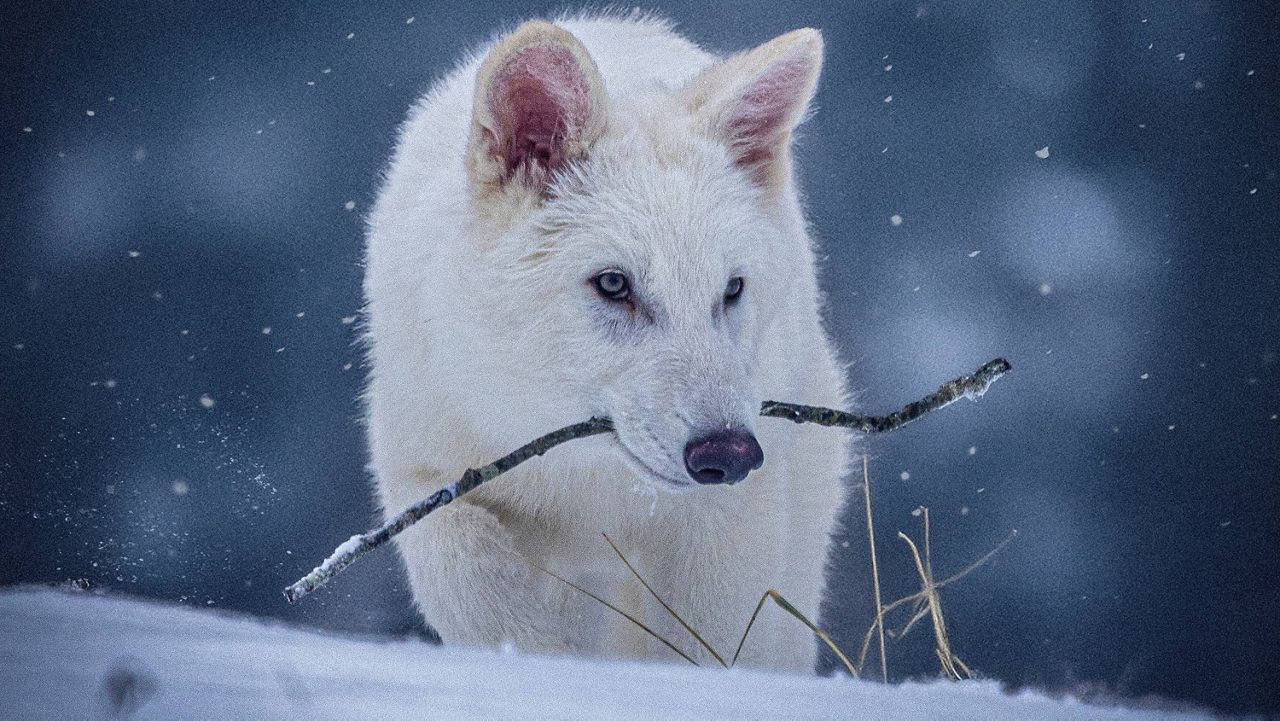DALLAS — Winter is coming. A rare wolf that inspired the Stark family's canines on the HBO TV show “Game of Thrones” is back from the dead thanks to a Dallas-based company.
Thanks to the innovation and research at Colossal Biosciences, the dire wolf has successfully been brought back, making it the world’s first de-extinction.
After the dire wolf died out more than 12,000 years ago, scientists at Colossal have birthed three pups using ancient DNA, Colossal announced Monday. Researchers used cloning and gene-editing technology to alter the genes of modern wolves, a gray wolf, the prehistoric dire wolf’s closest living relative. The result? A hybrid similar in appearance to the wolf that had died out ages ago.
The three pups consist of the two males, Remus and Romulus, who are 6 months old and the 3-month-old baby female Khaleesi — a nod to the "Mother of Dragons," Daenerys Targeryen.
So how did they do it?
An international team of 50+ scientists examined 46 dire wolf remains for viable DNA and were able to recover 0.1% of the genome, according to the Colossal Biosciences website.
That 0.1% established the foundation for the de-extinction process.
Colossal scientists learned about specific traits that dire wolves possessed by examining ancient DNA from fossils. The researchers studied a 13,000 year-old dire wolf tooth unearthed in Ohio and a 72,000 year-old skull fragment found in Idaho, both part of museums' collections.
Then the scientists took blood cells from a living gray wolf and used CRISPR to genetically modify them in 20 different sites, said Colossal’s chief scientist Beth Shapiro. They transferred that genetic material to an egg cell from a domestic dog. When ready, embryos were transferred to surrogates, also domestic dogs, and 62 days later the genetically engineered pups were born.
Colossal has previously announced similar projects to genetically alter cells from living species to create animals resembling extinct woolly mammoths, dodos and others.
Though the pups may physically resemble young dire wolves, “what they will probably never learn is the finishing move of how to kill a giant elk or a big deer,” because they won’t have opportunities to watch and learn from wild dire wolf parents, said Colossal’s chief animal care expert Matt James.
The U.S. Sect. of Interior Doug Burgum welcomed the process of de-extinction and said "it's time to fundamentally change how we think about species conservation," in a post on X.
The mission of the U.S. Fish and Wildlife Service is to work with others to “conserve, protect, and enhance fish, wildlife, plants, and their habitats for the continuing benefit of the American people.”
— Secretary Doug Burgum (@SecretaryBurgum) April 7, 2025
The Department of the Interior is excited about the potential of…
The Associated Press contributed to this report.




